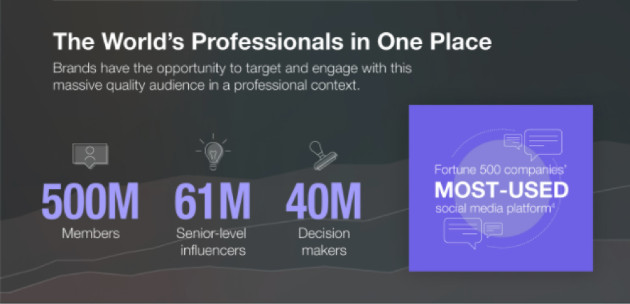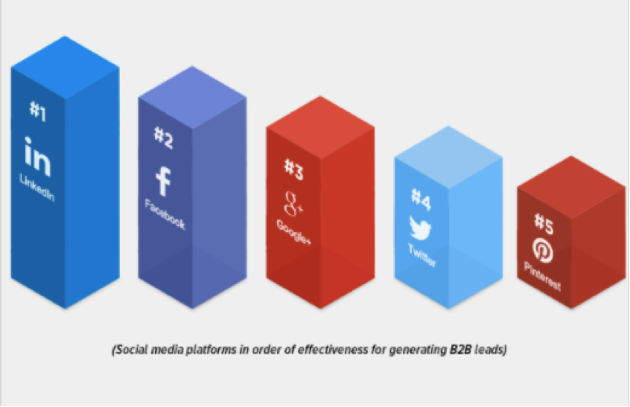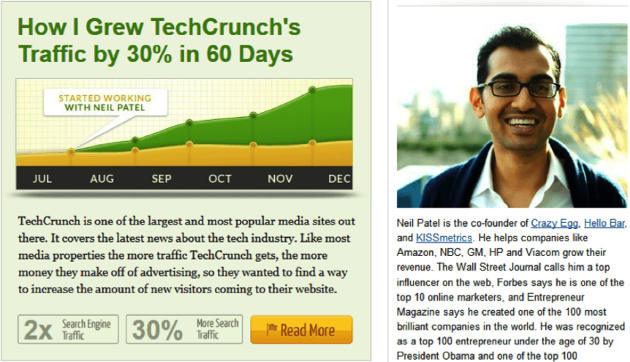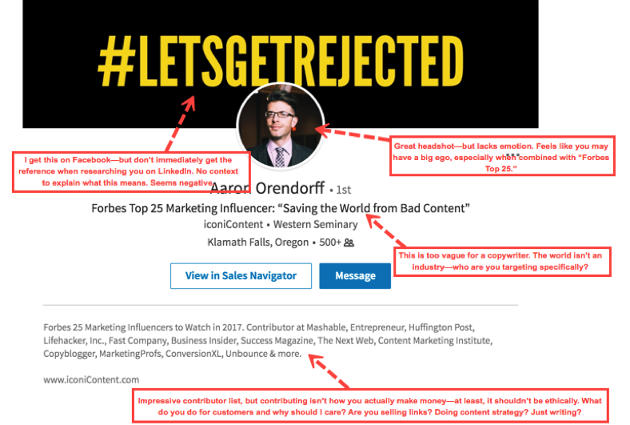With more than 500 million users, LinkedIn is the world's go-to site for professional networking, job searching, and corporate branding.
It's also the ultimate platform for high-level marketing, lead generation, and thought leadership.
Fully 92% of B2B marketers prefer LinkedIn over other social networks,44% of LinkedIn users earn more than $75,000 per year, and 41% of millionaires use the platform.
That's why LinkedIn is a prime platform for lead generation.

Image from LinkedIn Marketing Solutions
" Social media platforms as a whole aren't scoring high on the lead awesomeness scale," asserts Kissmetrics, "But among the low-scoring social sites, there is one that stands out as a success marker. You guessed it: LinkedIn."
Nearly 80% of marketers consider the platform the most effective social media source of lead generation.

Image from Business2Community
You know the potential, but are you struggling to make the most of LinkedIn? If you are, chances are you've been putting the cart before the horse.
Aaron Orendorff, a veteran online marketer and co-initiator of the recent #LetsGetHonest LinkedIn campaign, shared critical questions every LinkedIn marketer must answer to move from "Oh no!" to "Yes, I made it."
Let's have a quick look at three key questions to ask when using LinkedIn.
1. Who are you?
LinkedIn success depends heavily on personality. The first thing that defines you—and your personal brand—is your profile picture. That ordinary headshot says a lot about you.
With the right photo, marketers can create an impression that wins over high-profile contacts, helping you generate more leads and close more deals. The opposite correlation is true as well.
Check out Aaron's profile picture. It's not exactly off-putting, but there's something wrong with it. Thanks to Jacob Warwick for pointing it out: "Great headshot—but lacks emotion. Feels like you may have a big ego, especially when combined with 'Forbes Top 25.'"
Read that again! That review couldn't be more right. It reminds me of Ryan Holiday's candid philosophical submission from his book Ego Is the Enemy—that the greatest opponents to success are ego and self-absorption.
As a marketer, having a profile picture that portrays you as approachable and welcoming can unlock doors. You have to be discerning about the picture and the message it implies.
Another important element of your profile is the headline. Most LinkedIn regulars, even high-level professionals, fall short in their headlines.
Meanwhile, it's almost impossible to succeed on LinkedIn without a powerful headline.
2. What do you do?
The headline is not all about who you are. Rather, it's a brief, efficient way to define what you do and the value you add.
For some people, explaining their value and portfolio in a nutshell is a tougher struggle than for others. "You're a complex person, with unique ambitions, experiences, preferences, and traits," says Aja Frost of HubSpot. "How are you possibly supposed to distill yourself down?"
Since it's hard to sum up ("I help X do Y" or "I do X for Y"), a lot of experts end up using a vague phrase like Aaron's former headline, "Saving the world from bad content." (His current headline is the more-specific "Editor in Chief of Shopify Plus & Forbes Top 10 B2B Content Marketer.")
To really win (more), use the headline as a hook. Make it to the point and searchable. For instance, Neil Patel has three sought-after keywords that make his profile show up in search results: "marketing expert," "consultant," and "speaker."
Describe yourself in simple, searchable terms like those.
Finally, maximize the header to draw in more leads. Josh Steimle, a top marketing influencer, has one of my favorites:
3. How do you help, and why should anyone care?
Say you work in a content marketing agency. The core of your LinkedIn summary should capture how exactly you help busy executives and brands. A case study or success story can help you make your point.
Wondering how? Use a simple (but authentic) graph to show what kind of lead generation, sales increase, or social media traction you were able to drive with your content, such as Neil Patel's case study:

You can also add a short, compelling video to highlight clients you've helped and the ways you've helped them.
If you've successfully worked with a client or company, show prospects what you're capable of by using the "experience" section judiciously. Don't start by talking about yourself; flaunt some case studies to prove what you can do.
* * *
Winning on LinkedIn isn't rocket science, but it does take some effort. By thinking about each of these three questions and taking action accordingly, LinkedIn marketers will be poised to win again and again.






